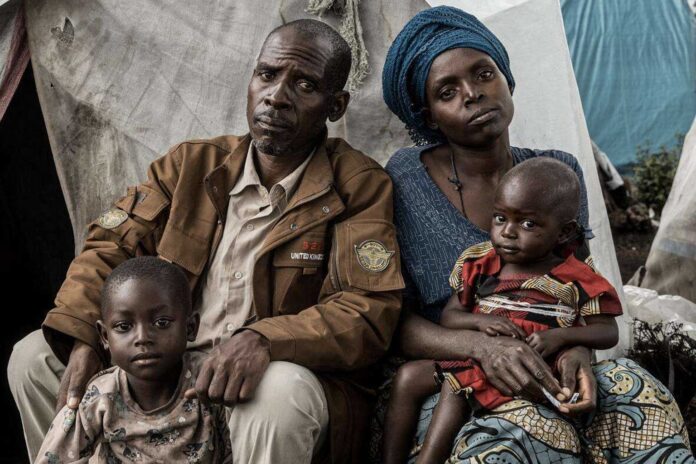The Democratic Republic of Congo (DRC) continues to grapple with a complex conflict that has plunged the country into a deep humanitarian crisis. The situation in the eastern DRC, particularly in the provinces of North Kivu and South Kivu, has deteriorated due to renewed violence involving multiple armed groups, including the M23, Allied Democratic Forces (ADF), and others.
Renewed violence and humanitarian crisis
Recent months have seen an escalation in violence, leading to massive displacement. More than 500,000 people have been forced to flee their homes in North Kivu alone since October 2023. The M23 rebel group has been particularly active, with continued offensives leading to significant civilian casualties and widespread displacement. The United Nations (UN) and humanitarian agencies have reported that the conflict has exacerbated the already dire humanitarian situation, with acute food insecurity and a severe shortage of basic necessities affecting millions.
International and regional responses
The international community, including the United Nations Security Council, has condemned the violence and called for immediate action to address the crisis. Countries like France and the United Kingdom have urged external actors to cease support for armed groups, emphasizing the need for diplomatic dialogue through the Luanda and Nairobi peace processes. The Southern African Development Community (SADC) has also deployed a regional force to support Congolese national forces in stabilizing the region.
Impact on civilians
The conflict has had devastating effects on civilians, particularly women and children. Reports indicate that sexual violence remains rampant, used as a weapon of war by various armed groups. The humanitarian impact extends beyond immediate violence, with millions facing acute food insecurity. The World Food Programme (WFP) and the Food and Agriculture Organization (FAO) are scaling up efforts to provide emergency food assistance and support agricultural production to mitigate the food crisis.
Challenges for peacekeeping and future prospects
With the UN peacekeeping mission, MONUSCO, ceasing its operations in South Kivu Province, at the request of the Democratic Republic of the Congo (DRC) government. The force will now limit the implementation of its mandate to the provinces of North Kivu and Ituri from May 2024. Given the UN peacekeeping forces withdrawal, concerns about a security vacuum are mounting. The capacity of Congolese forces to maintain stability in the absence of international peacekeepers is a critical concern. Efforts to demobilize and reintegrate combatants, particularly child soldiers, remain a priority to prevent further recruitment by armed groups.
Calls for sustainable solutions
Civil society representatives emphasize the need for sustainable solutions that address the root causes of the conflict, including economic instability and lack of governance. Investing in agriculture and rural development is seen as a key strategy to improve livelihoods and reduce dependency on humanitarian aid. The international community is urged to provide the necessary funding and support to bolster these efforts and ensure long-term stability in the DRC.
As the conflict in the DRC continues, the need for comprehensive and coordinated efforts to address both the immediate humanitarian needs and the underlying causes of instability is more pressing than ever. The international community’s support, coupled with robust local initiatives, is crucial in navigating the path towards peace and recovery in the region.
The article is part of our special news feature on —Human Stories from Forgotten Wars










